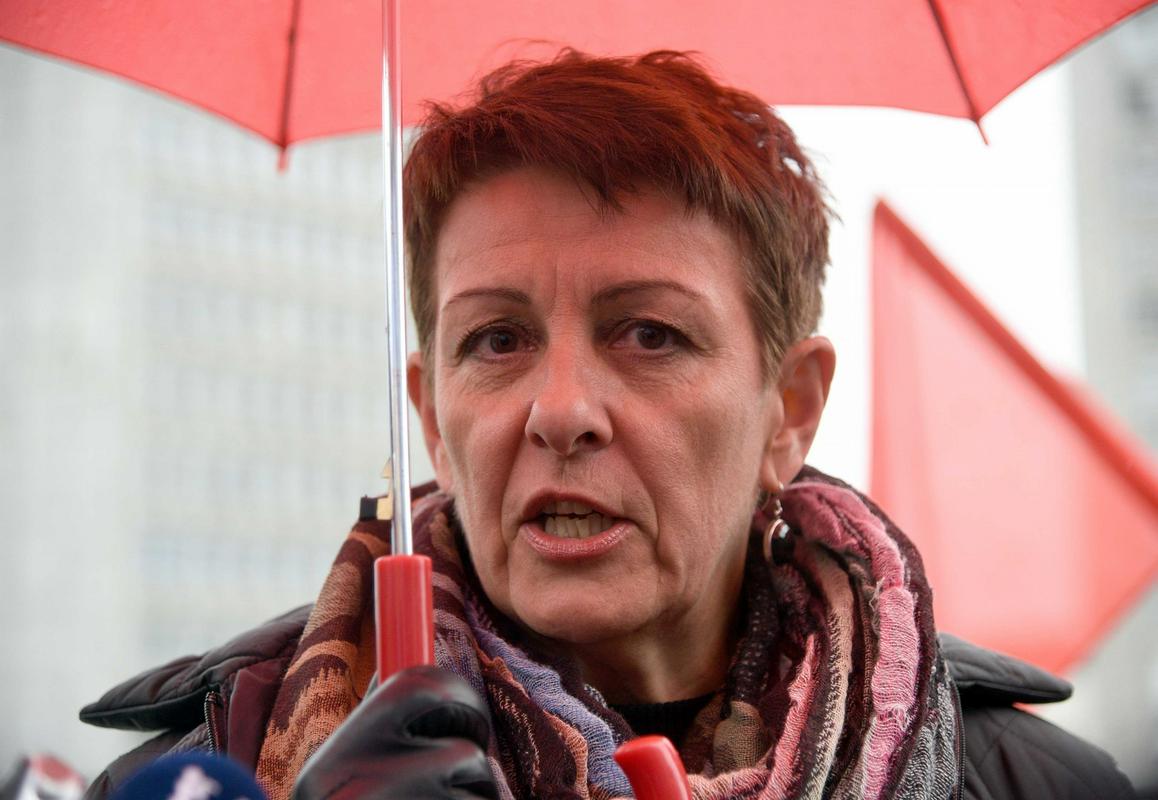
Private sector workers see the employers’ threat to cancel industry-wide collective bargaining agreements as the last straw, primarily because pay increases in the public sector have not matched the rate of economic growth. Lidija Jerkič stated that collective bargaining agreements have seen a step backward in the past decades, since various workers’ rights have been removed from them, while the pay rates set by the agreements do not account for increases in the minimum wage and include wages well below the official minimum.
“If we actually had a working social dialog, which is so often mentioned by all parties, we wouldn’t have to use legislation to get pay raises,” stressed Jerkič. She expressed her surprise that management representatives are taking such hardline positions because of a pay raise of just 30 euros.
A protest march on Dimičeva Street set for December 5
That’s why the labor unions have announced a protest for December 5. It is scheduled to take place on Dimičeva Street, where several employers’ associations have their headquarters. According to Jerkič, the protest was organized in a relatively short period of time. Its goal is to counter threats about canceling collective bargaining agreements and supporting new minimum wage legislation. The protestors want to express their demands for higher wages, which have not risen in line with increased corporate profits at a time of robust economic growth.
Lidija Jerkič stated that the employers want to get rid of all industry-wide collective bargaining agreements and transfer them to the company level, which would enable companies to negotiate directly with union representatives or even with the workers. “And we know where this will end. After all, the rise of precarity in fields not covered by industry-wide collective bargaining agreements is not a coincidence.” Jerkič added that the pay raises are not the only element governed by collective bargaining agreements, but that they also include elements such as additional vacation time, extra pay for difficult work, and bonuses. Without collective bargaining agreements “only the law will still protect workers’ rights.”
Smole: 30 euros is not the problem; the real problem is the lack of dialog
The Employers’ Association of Slovenia responds that wages in the private sector have increased throughout this period, even during the worst stages of the crisis. They do not see demands for a general pay raise as justified. “Increases in private sector pay are set after bipartite dialog among the social partners within a certain industry,” said the Secretary General of the Association, Jože Smole. He pointed out that the pharmaceutical industry and the garment industry don’t face the same circumstances. Smole added that some raises can be higher because the companies can afford them. He stated that employers oppose the new minimum wage legislation because it abolishes social dialog, not because of the proposed pay raise itself. “The amendment abolishes social dialog and hands the entire process of awarding bonuses over to the state,” said Smole, as quoted by the Slovenian Press Agency (STA).

































































